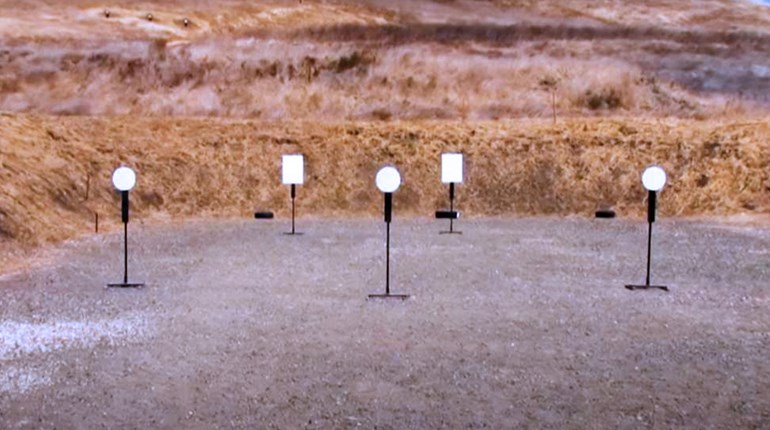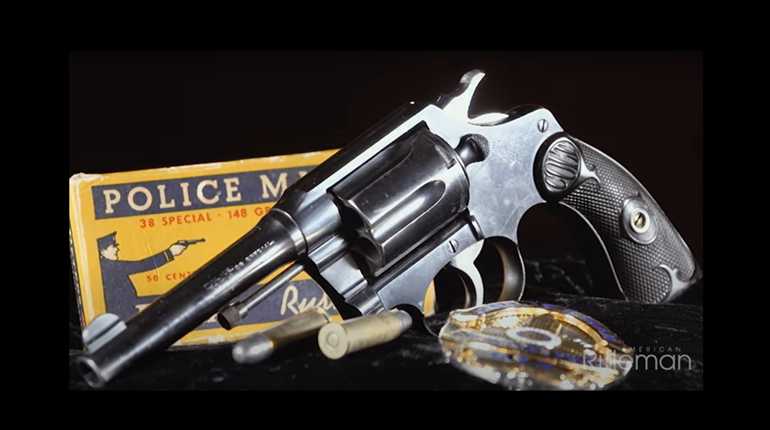
You have just been attacked by an armed criminal and forced to deploy your defensive handgun. Too often, people who prepare for such a possibility fail to consider what they should do and what they should expect once the gunfire has ceased. Dealing with the aftermath of such an unfortunate situation should be a critical part of your personal defense plan. To fail to consider it can place you in a good deal of legal and physical danger. Once the shooting is over, you should put your gun away and call 9-1-1 immediately.
When you call 9-1-1, you should give your name, location and a very brief description of what has just occurred ("A man tried to rob me with a gun and I had to shoot him"). You should ask that an ambulance and law enforcement be dispatched right away. It is not your responsibility, nor are you trained to determine, if your attacker is still alive. Assume that he is and get him some medical attention.
You should understand that 9-1-1 lines are recorded, and that recording can be produced as evidence in court. For that reason, in your stressed-out mental state, it is not a good idea to try to explain the various details of what happened. The time for that will come later, after you have consulted with an attorney and had an opportunity to calm down.
You should also understand that, if you are still holding your gun when the police arrive, you stand a very good chance of being shot. Police officers cannot tell the good guys from the bad guys by simply looking at you. If they see a gun in your hand, they must assume that you represent a threat to them.
Just a few years ago, in a Southwest city, police shot a man whose wife had told them on the phone that he was the good guy who was holding a gun on a home invader. When the first officer arrived on the scene, the wife told him the same thing. The officer promptly went into the house and shot her husband nine times. Police officers can be stressed and confused, too.
We teach defensive students to only reholster their guns when peace has been restored to their immediate area. However, there may be times when the shooting has stopped but you still don't feel very safe—the attacker may have friends or relatives nearby. In this case it is best to get away from the scene. You don't necessarily have to go far. You may just create some distance and get behind good cover to await the arrival of law enforcement. Just do your best not to have the gun in your hand when they arrive.
Keeping in mind that the police don't know what has happened and don't know the players, don't be surprised if you are ordered to lie face-down on the ground. And, if that happens, you will more than likely be handcuffed as well. This doesn't mean that anyone automatically thinks that you are guilty. What it means is that the police officers are going to make doubly sure that the trouble is over, and that no one else is about to get hurt. You may even be transported to the jail, still in handcuffs. Don't argue with it, just live with it. It is not the end of the world.
It is okay to tell them that you are the victim and that you are the one that called 9-1-1. Just understand that police officers, in the course of their duties, are told all sorts of things. What they seek are independent facts from the scene and from witnesses that tell them what really happened. It is not uncommon for police officers to apologize to crime victims, once the facts have come out, for taking them down. The best thing that you can do is be cooperative.
Eventually, someone is going to advise you of your Constitutional Rights and attempt to interview you. This is where it is critical that you have already sought the advice and guidance of a criminal defense attorney prior to carrying your defensive handgun. You should use the earliest opportunity to contact that attorney and get him or her down to talk to you and be present when the police question you.
People who have gone through the traumatic experience of having to shoot another person are under a huge amount of stress. In most cases, it will be more stress than they have ever experienced before. And they are under more stress than they realize and often more stress than they care to admit. This is not a good time to be trying to explain why you used lethal force.
Be polite to the interviewing officers, but tell them that you are very upset and stressed out. Tell them that you intend to cooperate with them but that you simply want your attorney present before you make any sort of statement—verbal, written or video. This is not the time to say things that you might regret later, or things that, given time, you would have said better and more clearly. It also gives you time to replay the entire episode in your mind and to better remember all of the facts involved.
What I have just described in the aftermath of a defensive shooting is not what most folks want to have to consider. But it is the reality of what could very possibly happen. If you consider it and expect it, you will have a better chance of dealing with it in as positive a manner as possible. And this is the reason that the aftermath of a defensive shooting should be a critical part of your personal defense plan.




































